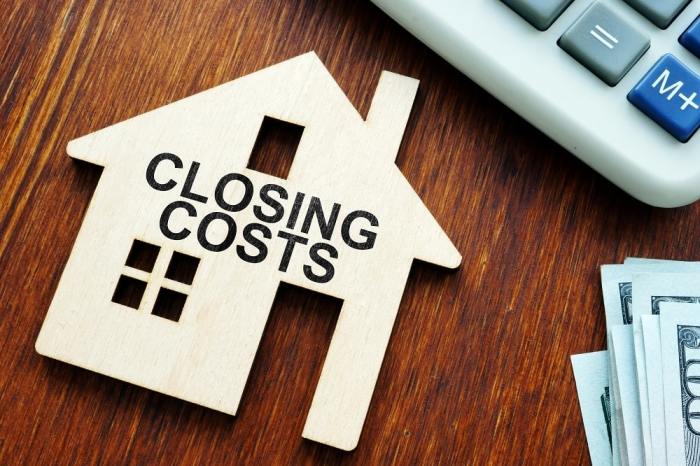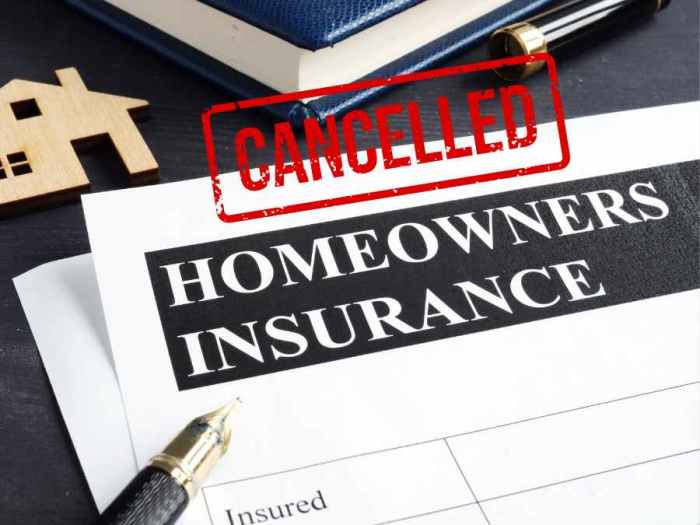The home-buying process is often exhilarating, but the financial intricacies can be daunting. One crucial aspect often overlooked is the homeowners insurance premium at closing. Understanding how these premiums are handled, what factors influence their cost, and how to navigate potential issues is essential for a smooth and stress-free transaction. This guide unravels the complexities, offering clarity and practical advice for both buyers and sellers.
From understanding the role of escrow in managing premium payments to comparing different insurance providers and addressing potential discrepancies, we’ll explore all aspects of homeowners insurance premiums at closing. We’ll delve into the key factors influencing premium amounts, such as property features, location, and coverage levels, equipping you with the knowledge to make informed decisions.
Comparing Insurance Providers

Choosing the right homeowners insurance is crucial, and a significant part of that process involves comparing different providers. Failing to compare can lead to overpaying for inadequate coverage or underinsuring your property, leaving you vulnerable in case of damage or loss. Understanding the nuances of different policies and pricing structures is key to making an informed decision.
Comparing the pricing and coverage options of various homeowners insurance providers is essential for securing the best value for your money. Different companies offer varying levels of coverage, deductibles, and premium costs, depending on factors such as your location, the age and condition of your home, and your coverage needs. A thorough comparison allows you to tailor your insurance to your specific requirements and budget.
Finding Affordable Homeowners Insurance
Several strategies can help homeowners find affordable insurance. These include increasing your deductible (though this increases your out-of-pocket expenses in the event of a claim), bundling your homeowners and auto insurance with the same provider, improving your home’s security features (like installing a security system or smoke detectors), and maintaining a good credit score (as credit history often factors into premium calculations). Shopping around and comparing quotes from multiple insurers is also vital. For instance, a homeowner in a high-risk area might find significantly different rates between a national provider and a regional, mutual insurance company specializing in that specific region. Finally, carefully reviewing your coverage needs and opting for only the necessary protection can lead to savings. Unnecessary add-ons can inflate premiums without providing proportional benefit.
The Importance of Comparing Quotes
Before selecting a homeowners insurance provider, comparing quotes is paramount. This allows you to directly contrast pricing and coverage features across different companies. For example, one insurer might offer a lower premium but have a higher deductible, while another might have a higher premium but offer broader coverage, including things like flood or earthquake insurance (often purchased separately). By comparing quotes side-by-side, you can identify the best balance between cost and coverage that aligns with your risk tolerance and financial situation. Consider using online comparison tools that allow you to input your details and receive multiple quotes simultaneously, streamlining the comparison process. Remember to compare apples to apples – ensure you’re comparing policies with similar coverage limits and deductibles to make a truly informed decision.
Illustrative Examples

Understanding the nuances of homeowners insurance premiums at closing can be challenging. Let’s explore some scenarios to illustrate the potential complexities and responsibilities involved for both buyers and sellers. These examples are for illustrative purposes and should not be considered legal or financial advice.
Unexpected Premium Costs for the Buyer
Unexpected Premium Increase
Imagine Sarah and Mark are closing on their dream home. They’ve secured a mortgage pre-approval and factored in all expected closing costs. However, during the final stages, the insurance company assesses a higher-than-anticipated premium due to factors like the age of the home’s roof, the proximity to a wildfire-prone area, or a recent increase in claims in the neighborhood. This unexpected increase can significantly impact their closing funds and might require them to renegotiate with the seller or secure additional financing. This situation highlights the importance of obtaining multiple insurance quotes well in advance of closing to avoid such surprises. A delay in obtaining insurance could also lead to unexpected costs, including potential penalties.
Seller’s Responsibility for a Portion of the Premium
John is selling his house and the closing date is rapidly approaching. His homeowner’s insurance policy covers the property until the end of the month, but closing is scheduled for the middle of the month. The buyer’s insurance policy won’t become effective until the day after closing. To ensure continuous coverage and avoid any gaps, John agrees to prorate his insurance premium, covering the period between the closing date and the end of his policy’s term. This is a common practice, especially when the closing date doesn’t neatly align with policy renewal dates. The exact amount John pays is calculated by dividing the total annual premium by 365 days and multiplying by the number of days of coverage he is responsible for. This demonstrates how sellers can sometimes bear a share of the insurance cost during the transition of ownership.
Securing Homeowners Insurance and Paying the Premium at Closing
Maria and David are purchasing their first home. Several weeks before the scheduled closing, they diligently shop around for homeowners insurance, comparing quotes from different providers based on factors such as coverage amounts, deductibles, and policy features. They select a policy that meets their needs and budget. Their lender provides them with the insurance requirements, including the specific coverage amounts. Once the policy is finalized, the insurance company issues a binder – a temporary proof of insurance. At closing, the final premium amount, calculated by the insurance company based on the effective date of the policy, is included as a part of Maria and David’s closing costs. The escrow agent collects this premium, and the funds are subsequently sent to the insurance company. This illustrates a typical, straightforward process where the buyer secures insurance, and the premium is paid during the closing transaction.
Closure

Securing homeowners insurance and managing the premium payment at closing is a critical step in the home-buying journey. By understanding the process, factors influencing costs, and potential issues, both buyers and sellers can navigate this aspect of the transaction with confidence. Proactive planning, informed decision-making, and a clear understanding of your policy details will ensure a smoother closing and a secure start to your homeownership.
FAQ Insights
What happens if I can’t afford the homeowners insurance premium at closing?
Contact your lender immediately. They may offer options such as securing a short-term loan or adjusting your closing costs. Failing to secure insurance could delay or even jeopardize the closing.
Who is responsible for paying the homeowners insurance premium – the buyer or the seller?
This is typically Artikeld in the purchase agreement. Often, the buyer is responsible for securing and paying the premium from the closing date onward. However, the seller may be responsible for a prorated portion covering the period before closing.
Can I choose my own homeowners insurance provider?
Generally, yes. While your lender might have preferred providers, you are usually free to choose a company that offers the best coverage and price for your needs. It’s advisable to obtain multiple quotes before making a decision.
What if the insurance company increases my premium after closing?
Your policy will specify the terms of premium adjustments. While increases are possible, they are usually subject to specific conditions and notification periods. Review your policy carefully and contact your insurer if you have questions or concerns.